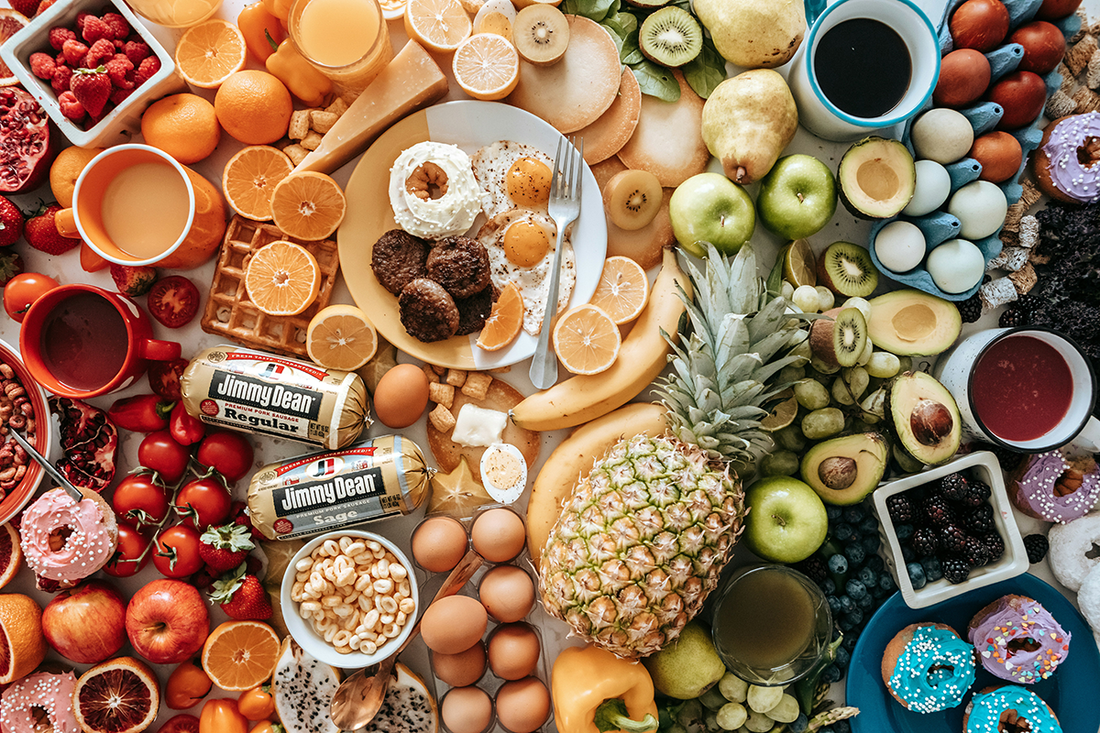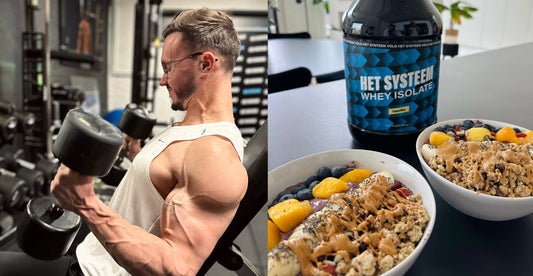
Nutrition explained simply
If we want to have a big effect without too much effort, then it is best to look for your 'low hanging fruit'. This means adjusting certain things, and these can be small things that are easy for you to do.
Some examples:
- place the car 100m further
- take the stairs instead of the elevator
- Exchange Coca Cola for a Cola Zero
- place a bottle of water next to you
- …
Obviously this is different for everyone, so think about what could be a simple adjustment for you that could still have a big effect. The simplest things are often overlooked and you tend to overcomplicate things.
Where should you start in terms of nutrition? The basics of course, namely: calories.
Simply explained: if you eat less than you burn, you lose weight. If you eat more than you burn, you will gain weight. (Calories in VS calories out)
But what do you do if you don't want to count calories or weigh foods? Not everyone is mentally ready to track calories or you just don't feel like it. Know that this too is okay. Don't let anyone tell you otherwise.
There are a number of ways to work on your nutritional intake without tracking calories:
1. Eat more vegetables
Double your portion of vegetables and make sure that at least half of your plate is filled with vegetables. Vegetables contain few calories, so you can eat a large portion of them without consuming too many calories. They also offer many health benefits.
2. Protein with every meal and snack
Proteins are the building blocks of your body and are therefore a priority. Include some protein with every meal. Some examples are meat, fish, skyr, cottage cheese, whey proteins, eggs... And no, proteins are not bad for people without existing kidney problems.
3. Eat more fruit
There are many health benefits associated with this. No one has become overweight by eating too much fruit. Moreover, they are easy to take with you as a snack. Aim for at least 2 pieces of fruit per day. And no, you will not die or get fat from the fructose they contain.
4. Drink enough water
Our body consists of 60-70% water and our brain even 75%. Sufficient hydration is extremely important for our health. If you often suffer from headaches, dizziness, difficulty concentrating, low energy... then water can provide the solution. In addition, water makes you feel full, so you feel less hungry. So drink enough during the day and drink a large glass of water before a meal. This way you will eat less of this meal and therefore eat fewer calories.
5. Meal timing
Try to schedule your meals at times when you know hunger will take over. So make sure you have a fixed structure. This way you stay ahead of hunger and you are less likely to reach for other things.
6. Eat without distractions
You've probably already experienced it: you prepare a meal, you sit down, pick up your cell phone and start eating and before you know it it's all gone and you're still hungry. Be aware of what you eat and avoid screens during your meal. This way you are more concerned with what exactly you eat and this can also help to improve the digestion process. In addition, you will also become more aware of the hunger signals that your brain sends out.
7. Know when to stop
If you listen to your body, you will notice that the body sends a signal that you have had enough. So it is no problem at all not to eat everything. It's certainly not rude. You are certainly not supposed to eat until you feel nauseous and watch everything come out again. To give you a guideline: try to eat until you are about 80% full, and not 100% full.
These 7 steps may look simple, but they can have a very big and positive effect for you. Nutrition doesn't have to be complicated and you certainly don't have to be afraid of it.
Good luck!



